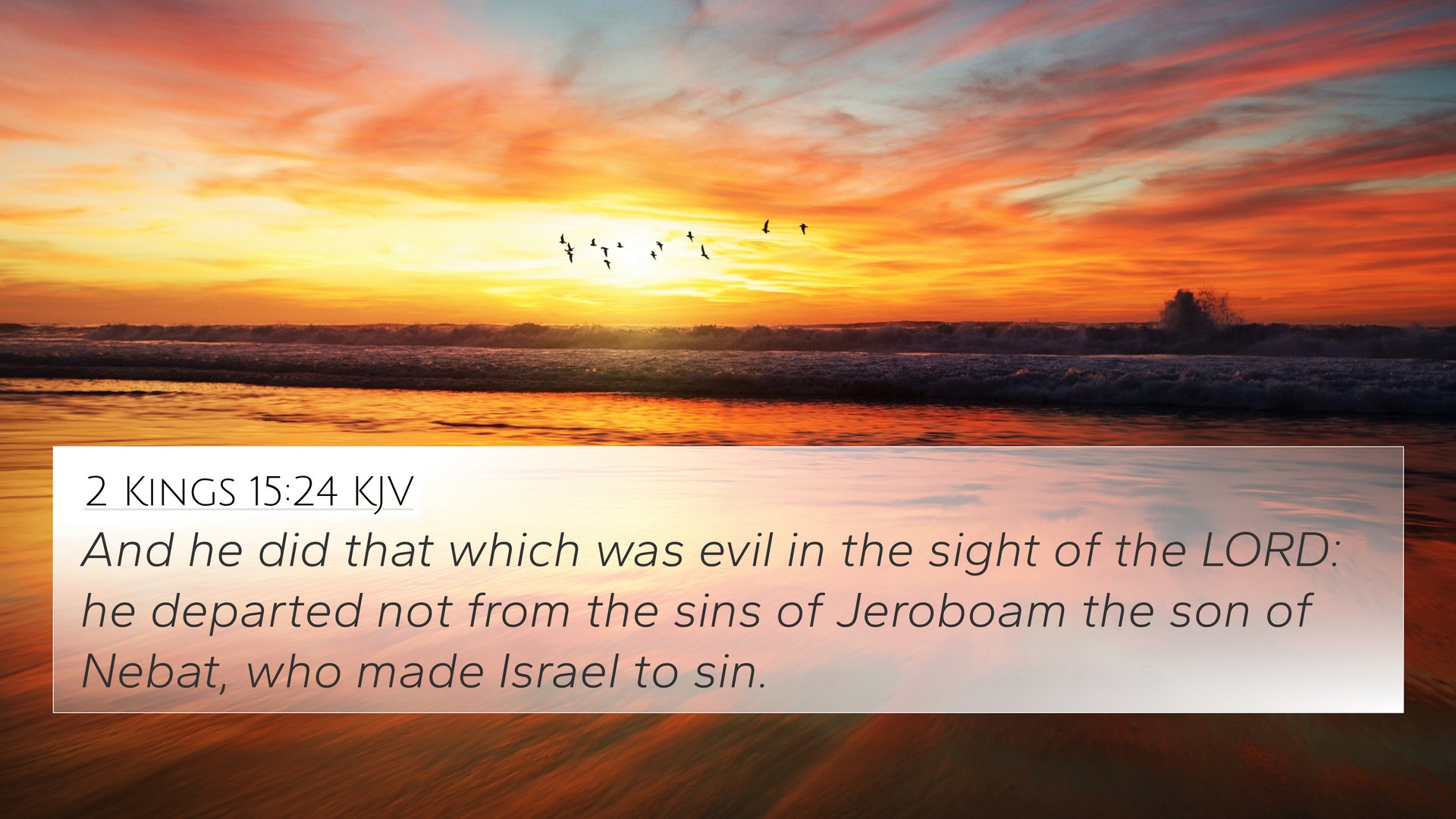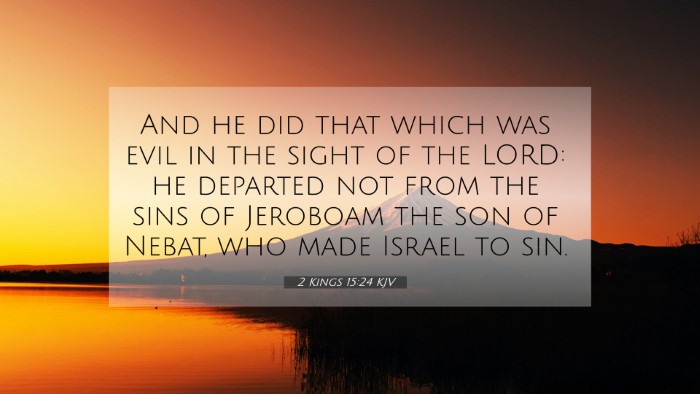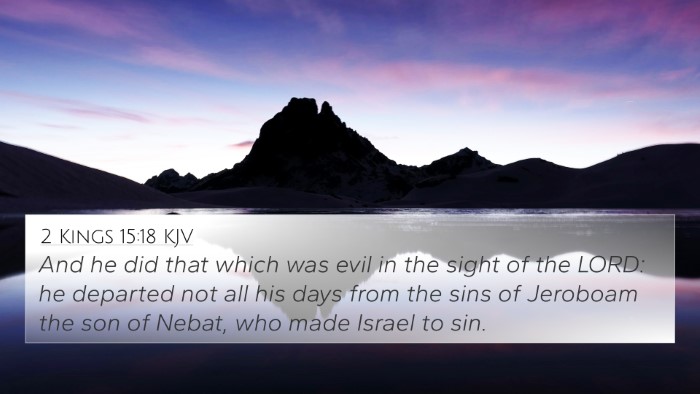Understanding 2 Kings 15:24
Verse: "And he did that which was evil in the sight of the LORD; he did not depart from the sins of Jeroboam the son of Nebat, who made Israel to sin." (2 Kings 15:24)
Summary of Meaning
This verse succinctly highlights the character of King Pekah, emphasizing his unfaithfulness to God and his adherence to the idolatrous practices established by Jeroboam. Public domain commentaries elucidate multiple aspects of Pekah's reign, showcasing the spiritual desolation that plagued Israel during this period.
Insights from Commentaries
- Matthew Henry: Henry notes that Pekah's reign is marked by a continuation of Jeroboam's sinful practices, signifying a lack of true repentance and fidelity to the Lord. His description as "evil in the sight of the LORD" underscores the severe spiritual decline in Israel.
- Albert Barnes: Barnes emphasizes that Pekah's actions are not merely personal failings but rather detrimental to the entire nation, as his sins perpetuate the cycle of disobedience established by Jeroboam, leading the people further away from God.
- Adam Clarke: Clarke provides historical context, suggesting that Pekah's choices were influenced by external pressures and the political landscape of the time. However, he notes that irrespective of circumstances, the king's responsibility to uphold the covenant with God remains paramount.
Bible Cross-References
To gain a deeper understanding of 2 Kings 15:24, one can explore the following relevant scripture connections:
- 1 Kings 12:28-30: The origin of Jeroboam's idolatry, which provides context for Pekah's sinful actions.
- 2 Kings 10:29: A reference to the iniquities of Jeroboam that influenced subsequent kings of Israel.
- 2 Kings 14:24: A brief indication of the moral stand of the kings leading up to Pekah.
- 1 Kings 15:26: The description of the evil deeds of another Israelite king, illustrating the broader pattern of unfaithfulness.
- Hosea 4:16: A prophetic perspective on Israel’s waywardness, tying the actions of its kings to divine judgment.
- Micah 6:16: A condemnation of following the statutes of Omri, paralleling the continued sinful legacy of Jeroboam.
- Isaiah 7:1-2: The geopolitical ramifications of Pekah’s reign, exploring how his unfaithfulness impacts Israel's stability.
Thematic Connections
The themes evident in 2 Kings 15:24 resonate with numerous Biblical principles:
- Idolatry and Apostasy: The peril of turning away from God, as exhibited by Jeroboam's sins.
- Leadership and Responsibility: The weight of a king's choices on the spiritual state of the nation.
- Divine Judgment: The inevitable consequences of failing to honor God in leadership.
Conclusion
2 Kings 15:24 serves as a critical reminder of the importance of faithful leadership in a covenant relationship with God. The verse not only reflects Pekah's personal failings but also reveals the collective impact of such choices on Israel's spiritual trajectory. Through the lens of cross-referencing and thematic analysis, one can discern the profound implications of these historical narratives for contemporary faith practice.
This understanding encourages the study and use of cross-referencing tools to enrich one's exploration of the Scriptures—helping individuals identify connections between Bible verses, establish thematic links, and engage in a deeper, more comprehensive Bible study.




